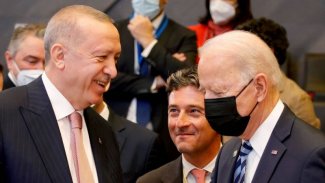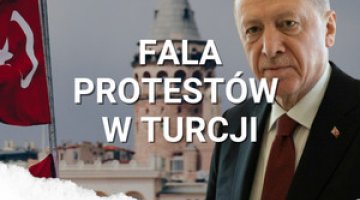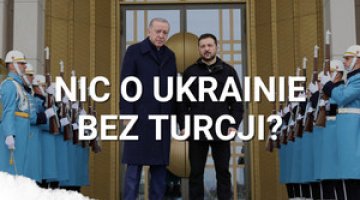No breakthrough. Biden-Erdoğan talks

On the sidelines of the NATO summit in Brussels (14 June), for the first time US President Joe Biden met with the President of Turkey Recep Tayyip Erdoğan. The talks lasted 45 minutes (although they were initially scheduled for 90). Extensive comments after the meeting were made only by Erdoğan himself, who stated that no progress between Turkey and the US have been made on disputes concerning a) the purchase of the S-400 air defence system; b) the thorny topic of removing Turkey from the F-35 programme; and c) their diametrically opposed positions regarding Washington’s support for the Kurdish military group YPG in Syria (which Ankara considers as a terrorist group with links to the Kurdistan Workers’ Party, PKK). The President of Turkey also used the opportunity to offer NATO and the US his country’s support in overseeing the continued supervision of the Kabul airport after NATO’s full withdrawal from Afghanistan (planned for September). In very sparing words, Biden assured his willingness to continue cooperation with Turkey, but did not respond to Ankara’s offer with regards to Afghanistan.
Commentary
- Relations between Ankara and Washington have been very tense for several years. This stalemate concerns strategic issues (frustration resulting from the US’s inferior treatment of Turkey; allegations that Ankara is practicing political adventurism and reorienting its interests towards Russia), regional policy (disputes around the Middle East related mainly to the Kurdish issue; quarrels over the Mediterranean Sea) and domestic politics (accusations of authoritarianism in Turkey; and complaints that the United States actively supported the 2016 failed coup attempt). Meanwhile, Turkey remains in a difficult economic and political situation and is subject to several US sanctions (resulting from its purchase of the Russian S-400 air defence systems), under which it has also been excluded from the F-35 aircraft development and purchase programme. Other bones of contention include Turkey’s consistent demand that the US hands over Fethullah Gülen, who is accused of organising the 2016 coup; and that America ceases their cooperation with Kurdish groups linked to the PKK - which Washington supports in Syria, but Ankara treats as a strategic threat to the integrity of the Turkish state. Biden’s rise to the presidential seat only further strained the two countries’ bilateral relations (long-term avoidance of contacts; pro-democratic pressure on Ankara; the symbolic –perceived as anti-Turkish – recognition as genocide of the Armenian mass murders of 1915 by the US). Over time however, both capitals have become increasingly aware of the need to reduce tensions - this was reflected in Turkey’s conciliatory gestures in the Mediterranean Sea, and in their support for the US during the escalation of the Ukrainian crisis (April of this year); while Washington on the other side, expressed their desire to hold serious talks at the NATO summit meeting.
- From Ankara’s perspective, the meeting of the presidents conveyed the message that the US is treating Turkey seriously, while offering Ankara an opportunity to clear up misunderstandings, ease tensions and propose new areas for cooperation. Despite a mutual agreement with regards to the importance of their relationship and keeping channels open for dialogue, the course of the talks (far shorter duration than expected) and the statements made immediately after them indicate that the two sides did not reach an agreement. This was evidenced not only by Erdoğan’s loud articulation of sensitive and still unresolved topics after the meeting (S-400, F-35, the Kurdish question), but also by Biden’s lack of reaction to Turkey’s cooperation proposal in Afghanistan.
- From Washington’s point of view, the meeting confirmed the will to maintain dialogue with Turkey - indicative of this was that Biden did not raise any controversial issues immediately after the talks. At the same time, however, the results of the consultations signalled that the President and the American elite (Congress) were adopting a principled approach to Turkish policy, both internationally and domestically – without any signs of revision. Although the question on the future of Afghanistan remains of great importance to Washington (it cares about maintaining stability there in the event of a withdrawal of NATO forces followed by increased pressure from the Taliban), the offer of Turkish involvement in Afghanistan along with Ankara’s demand for financial and political support from NATO there – possibly aimed at strengthening Turkey’s own position and cooperation channels with Pakistan – would not be the subject to bilateral talks, and at the current level, cannot serve as a sufficient impulse for the US to warrant a reset in bilateral relations with Ankara.
- As Turkey’s strained ties with the US are not the only area of friction, the meeting with Biden at the summit was also accompanied by talks between Erdoğan and the President of France along with the Prime Minister of Greece (as well as with a few other NATO leaders). A common position was agreed with France on further de-escalating the conflict in Libya (mainly concerning getting foreign mercenaries - fighting on both sides of the conflict - to leave the battlefield). This is certainly a positive step forward in Turkish-French relations, following more than a year’s hiatus. Unexpectedly, however, the biggest breakthrough turned out to be a change in rhetoric between Ankara and Athens, reflected in the declaration by Erdoğan and the Greek Prime Minister Kiriakos Mitsotakis of the will to cooperate and de-escalate their regional conflicts (as well as to maintain a positive dialogue). Despite the lack of progress in resolving problems with regards to the countries’ sea borders and their conflicting positions on the reunification of Cyprus, this change of tone towards Greece should still be considered as a significant achievement for Erdoğan’s policy, which will certainly be noticed by Brussels at the upcoming meeting of the Council of Europe (24 June).
- Contrary to some hopes ahead of the NATO summit, the Turkish-US talks cannot, however, be considered as a decisive leap forward. The partial restoration of dialogue channels is indeed an important signal, but the parties are yet to reach any strategic agreement on these matters. A welcoming sign is that both the US and Turkey are ready to tone down their rhetoric. In line with this trend, Ankara is committed to de-escalating tensions with its European partners in the Mediterranean (although the sustainability of this trend would also have to be confirmed, for example, at the Council of Europe summit on 24 June), and to building up its own position in the Alliance by promoting its activities in Afghanistan. As for the strategic dimension, we should expect Ankara to continue maintaining its independent foreign and security policy, including site-specific cooperation with not only Russia, but also with countries such as Pakistan, whose relations are linked to that of China. Similarly, the Kurdish issue may once again become a substantial challenge for future US-Turkish relations, as evidenced by Ankara’s gladiator posturing in their will to intensify military action against the Kurdish forces in Syria and Iraq, along that of resorting to further authoritarian domestic actions aimed inter alia at the pro-Kurdish HDP party. As for Washington itself, there currently is no sign of readiness to make concessions to Turkey’s demands.




